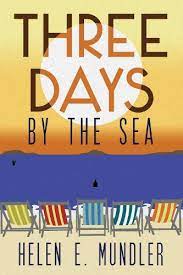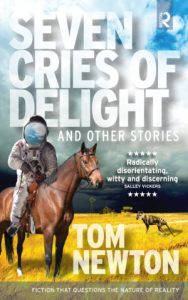 In Hiking Underground (Atmosphere Press, 203 pages), three urban naturalists explore the relationship between art and reality in episodic reveries about nature. Although the narratives ostensibly take place mostly in parks in Manhattan and Maine, the real action is in the minds of the characters as they explore the great outdoors and grow as artists and as individuals.
In Hiking Underground (Atmosphere Press, 203 pages), three urban naturalists explore the relationship between art and reality in episodic reveries about nature. Although the narratives ostensibly take place mostly in parks in Manhattan and Maine, the real action is in the minds of the characters as they explore the great outdoors and grow as artists and as individuals.
It worked, thematically, for me to think of the three main characters, Adam, Alice and Emma, as the same person at different stages of development. In the story, Adam is Emma’s six-year-old son; Alice is Emma’s student and Adam’s babysitter; Emma is a professional artist and a teacher. The book is divided into sections dedicated to each one of them in turn, although the focal point does visit different perspectives within each section. Adam’s sections are a portrait of the artist as a young child; Alice’s are of the artist as a student, whose emotional memories need resurrecting; Emma’s are of the consummate artist who is satisfied with her creations and begins the body of work that unites her past with her future. Continue reading




 Newton’s collection of surreal stories, Seven Cries of Delight (Recital Publishing, 170 pages) was nominated by Brent Robison who, in his
Newton’s collection of surreal stories, Seven Cries of Delight (Recital Publishing, 170 pages) was nominated by Brent Robison who, in his 


 Sea of Hooks (McPherson & Co) was nominated by Barbara Roether, author of This Earth You’ll Come Back To. In her
Sea of Hooks (McPherson & Co) was nominated by Barbara Roether, author of This Earth You’ll Come Back To. In her